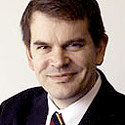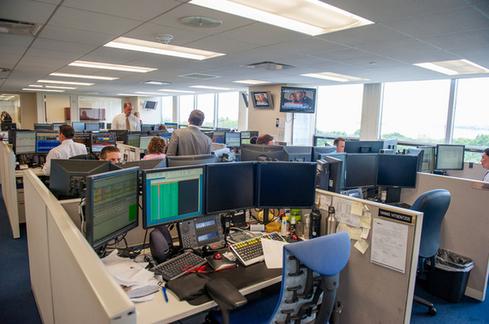10:00 AM
Scotland Independence Vote: Haggis & Fragmentation
If Scotland pipes its way to independence on Thursday, repercussions in the capital markets will be vast. Like dissecting haggis, removing Scotland from Great Britain’s financial markets system will be messy and complicated.
Scotland will need its own regulators, its own central bank, probably another currency, and maybe even a stock market, in order to compete in the world of international finance. With its commodities-based economy, Scotland’s exports -- from fish to crude oil to whisky -- will be more susceptible to the vagaries of geopolitics and financial markets conditions.
Therefore, it makes sense that if Scotland leaves the protection of Great Britain, the pound, and the Bank of England, it will begin to attract speculative attention from the outside financial world.
This is not a bad thing, merely a normal consequence of fragmentation.
The Business Dictionary defines fragmentation as “the emergence of new segments (in a previously homogeneous market) which have their own distinct needs, requirements, and preferences.”
When markets fragment, they create opportunities for traders. Statistical arbitrage is one such opportunity, where traders take advantage of tiny pricing inefficiencies in similar or correlated instruments.
[Do you aspire to the C-suite, or some other spot in upper IT management? Then bulk up your credentials around today's most pressing IT movement, digital business, at the InformationWeek IT Leadership Summit.]
For example, if the Scottish stock exchange had a listing for IRN-BRU, a much-loved Scottish soft drink (and alleged hangover cure), then prices for IRN-BRU could be compared with Pepsi or Coca-Cola. If IRN-BRU prices deviated significantly from its competitors it could present a trading opportunity for a wise dealer or clever algorithm.
If Scotland has to have its own currency, which is looking increasingly likely, it will present foreign exchange arbitrage opportunities. Even if the Scottish pound is pegged to the British pound there will be inefficiencies and volatilities that will attract traders’ attention.
Haggis futures exchange?
New and exciting indices or ETFs could be created to lure investors to take advantage of Scotland’s bounties. A whisky index could include whisky company share prices along with prices for barley. A haggis index could include prices for lamb, along with oats futures. Then traders could use algorithms to trade the components of the ETFs or indices against the outright prices of them.
I am kidding about the haggis index of course. But traders and algorithms love fragmentation.
When new regulations such as Regulation National Market Structure in the US (Reg NMS) and the Markets in Financial Instruments Directive in Europe (MiFID) opened up global markets, the dominance of traditional stock exchanges was chipped away. Many new alternative execution venues popped up, first in the US and then around the world. At one point the US stock and commodities markets splintered into around 60 different trading venues.
It was at this time that the opportunities for stat-arb and algo trading exploded. It was the birth of what we now know as high-frequency trading, where algos bounced from venue to venue and snagged fractions of pennies from the many inefficiencies -- to the tune of billions of dollars in profits.
Yet, out of fragmentation often comes consolidation. Fragmentation and HFT came under fire after the May 10, 2012, Flash Crash, and many times again as rogue algos, traders, and dark pools grabbed headlines. A book by Michael Lewis (Flash Boys) focused the spotlight most recently, prompting louder calls for further regulation.
Many of the fragmented venues eventually found the burden of independence too heavy, even before regulators came down hard. Liquidity was a hard fight to win in such a fragmented environment.
The 60-odd venues that once took on the stalwart NASDAQ and NYSE exchanges have since been decimated, having closed or been sold off and absorbed by competitors (including the stalwart exchanges).
Today, as we wait for the Scotland vote, there are other signs of "country fragmentation" looming. Catalonia is trying to break free from Spain. Quebec, after two failed separatist attempts, is watching the Scottish vote closely as it eyes another bid. Russian and Eastern Ukrainian separatists are trying to pry the area out from under Ukrainian rule.
I wonder if the latest movements toward country fragmentation will come to the same conclusion as the exchange venues did – that going it alone is hard work. Only time will tell. And, as the famous Scots poet Robbie Burns once said: "Nae man can tether time or tide."


















